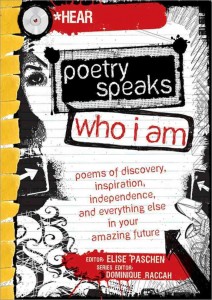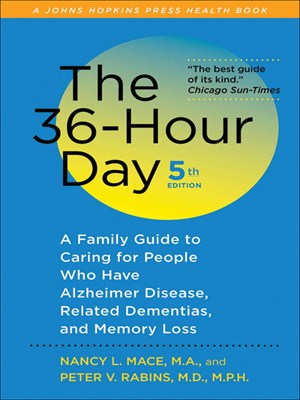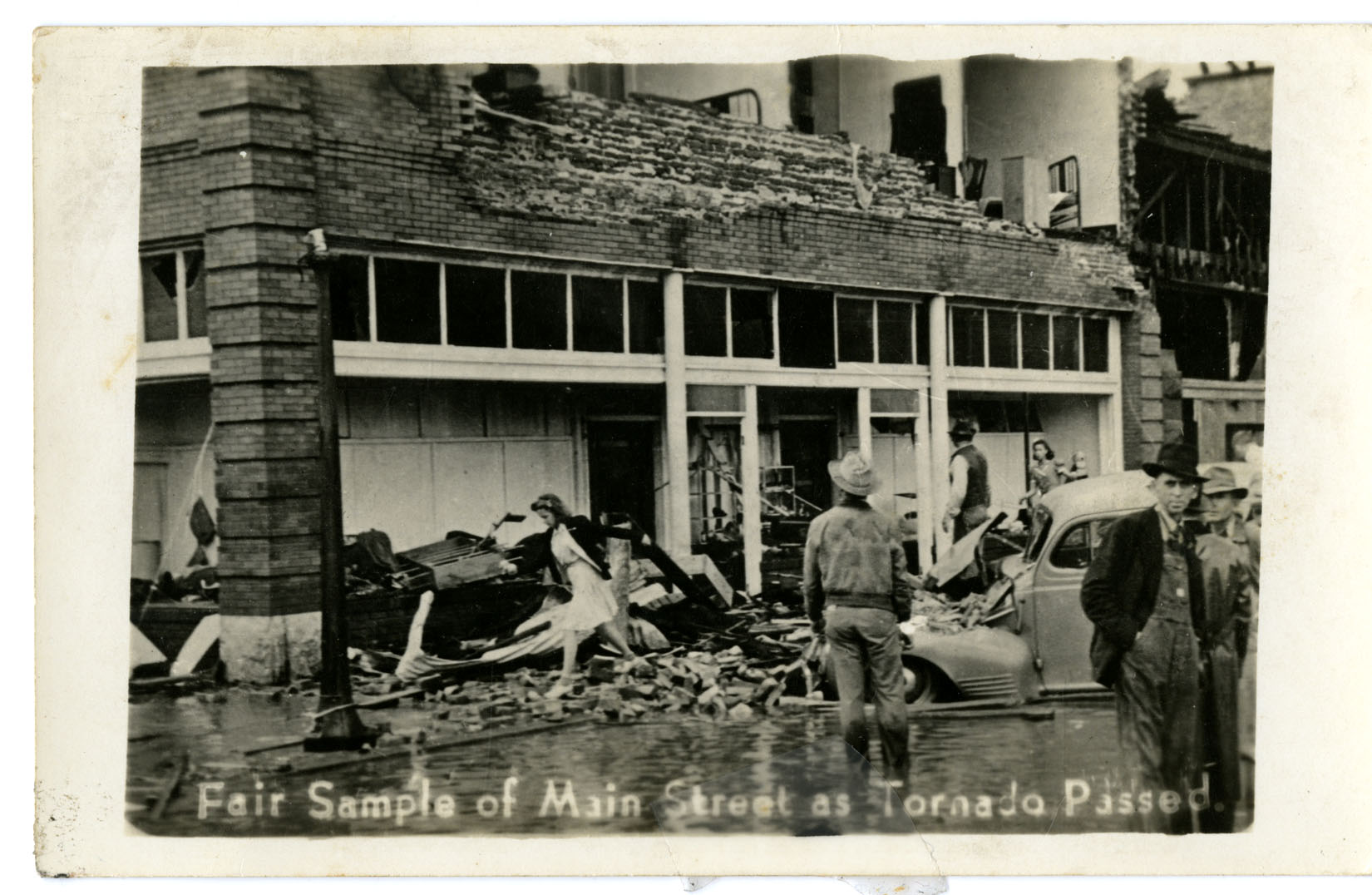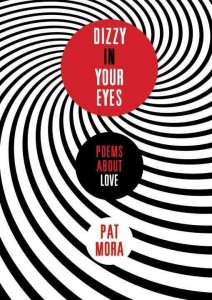Posts by Cari
Crafting for Grown-ups
Making art is good for the soul – and it doesn’t have to be intimidating. Join us for our monthly Crafting for Grown-ups nights, when we make art that’s accessible to everyone. It’s held every third Monday at 7 pm in the Library meeting room. It’s completely free and there’s no signup required, but RSVPing to our Facebook event page (look under “upcoming events” on the left-hand side of the page) helps us know how many to prepare for.
This month: Paint-your-own ceramic mug
Past programs:
- February: chocolate-dipped pretzel sticks
- January 2016: sugar scrubs
Pryor Tornado: April 27, 1942
In April of 1942, while the world was in the midst of World War II, tragedy hit much closer to home. A devastating tornado tore through Pryor, leaving a wake of destruction in its path and earning the title of 5th most deadly tornado in Oklahoma history. Click the picture below to visit the full gallery.
Not your Grandma’s Poetry
when death comes
like an iceberg between the shoulder blades
I want to step through the door full of curiosity, wondering:
what is it going to be like, that cottage of darkness?
So begins a poem in Mary Oliver’s New And Selected Poems, volume 1, one that ends with the determined line,
I don’t want to end up simply having visited this world.
This sense of energy and resolve permeates Oliver’s work. It took me until I was in my late twenties to realize that poetry could be read for pleasure – it’s not all the dry, flowery stuff we studied in school (sorry, English teachers!) Mary Oliver was one of the first poets I really loved; she might be your new favorite, too.
If you’re new to the contemporary poetry scene, a good place to start is Billy Collins’ (Poet Laureate, 2001 – 2003) Poetry 180, a collection of poems about everything from Alzheimer’s to bagels to an ode to Barbie’s Ferrari. Sad, romantic, funny, desperate – there’s a poem for every emotion. Try dipping into it a poem or two at a time, and before long I suspect you’ll find that more and more of them speak to you.
 For poetry that showcases a diverse slice of humanity, Poetry Speaks: who I am (edited by Elise Paschen) and Cool Salsa: bilingual poems on growing up Latino in the United States (edited by Lori M. Carlson) both do the job with unapologetic verve.
For poetry that showcases a diverse slice of humanity, Poetry Speaks: who I am (edited by Elise Paschen) and Cool Salsa: bilingual poems on growing up Latino in the United States (edited by Lori M. Carlson) both do the job with unapologetic verve.
God made you brown, mi’ja
color bronce, beautiful/strong,
reminding you of the goodness
de tu mamá, de tus abuelas
y tus antepasados.
But to many of us, say “poetry” and the first thing we think of is the romance of love poems. For a modern take on the ode to love, try Dizzie in Your Eyes: poems about love by Pat Mora.
We watch other couples
and feel happy that now we belong
to the world of twos.
The library can help … caregivers
Caring for a person with Alzheimer’s or dementia is tough.
It’s unpredictable, often heartbreaking, sometimes frightening. It can mean unrelenting hard work. And it can be very isolating. I know – my family provided 24/7 care for my grandparents during their last years, struggling to keep them healthy and safe while watching their minds fade away.
Know this: you are not alone.
According to data from the Alzheimer’s Association, “more than 15 million Americans provide unpaid care for individuals with Alzheimer’s or another dementia.”
The Library offers a host of materials designed to help caregivers , from books on making a house “age-proof” to practical advice and information, like why symptoms often seem worse in the evening and how to handle personality changes.
One such book is the recently updated The 36-Hour Day: a Family Guide To Caring for People Who Have Alzheimer Disease, Related Dementias, and Memory Loss. The Chicago Sun-Times called it “the best guide of its kind,” and we have to agree. It offers detailed, practical advice in a straightforward manner on everything from how to understand  your emotions as a caregiver to making sure medication is taken on time.
your emotions as a caregiver to making sure medication is taken on time.
There are also the personal stories – Don’t Leave Yet: How My Mother’s Alzheimer’s Opened My Heart by Constance Hanstedt shares the true story of a mother and daughter, while Still Alice – the Library owns both the book and the movie – imagines what life is like from the point of view of the fictional Alice after her diagnosis of early onset Alzheimer’s disease.



